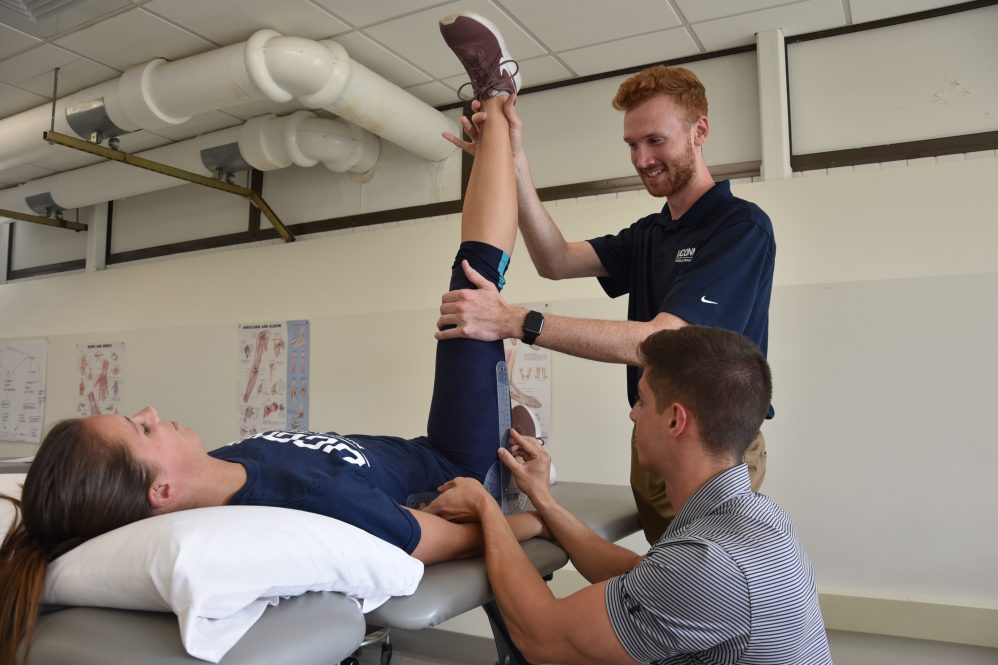The UConn Doctor of Physical Therapy Program (DPT) in the College of Agriculture, Health and Natural Resources will continue to build on its decades of success with its recently renewed accreditation from the Commission on Accreditation in Physical Therapy Education (CAPTE).
The DPT program within the College of Agriculture, Health and Natural Resources was established in 1956 as a bachelor’s degree. As the responsibilities of the physical therapy profession evolved so did the program, becoming first a master’s degree program and then a doctoral program in 2007.
This change emphasizes how physical therapists have become autonomous practitioners. The three-year program prepares students to work in a range of physical therapy professions.
“We are incredibly proud of the DPT program and the world-class education it provides to our students,” says Dean Indrajeet Chaubey. “Our students go on to fulfilling careers in a specialized field thanks to the instruction they receive from the instructors in the DPT program.”
Millions of people see a physical therapist each year to seek help with a range of health conditions that impact mobility. Physical therapists work closely with patients to regain function and get back to their normal activities whether that’s going for a daily jog or just being able to get dressed independently.
Each cohort includes about 30 students. This size allows students to receive personal attention from the experts who teach in the program and form meaningful connections with faculty and their peers.
For the first two years of the program, students take classes and lab courses which provide them with a robust knowledge base.
Students receive introductory education in a range of specialties including cardiopulmonary, orthopedics, neurology, pediatrics, and pelvic health.
“While they graduate as generalists, we expose them to a range of specialties from an entry level competence standpoint,” says Laurie Devaney, director of the DPT Program.
Following a white coat ceremony, in their third year, students spread out across the country for their clinical education rotations. Students spend 33 weeks in three different assignments: an in-patient, an outpatient, and a third setting that reflects the student’s particular interest.
The DPT program emphasizes hands-on experiential learning and regularly collaborates with other health professions and units within the university including the UConn Institute for Sports Medicine, psychology, engineering, child labs, and the ROTC program.
This collaborative work emphasizes a “whole-person” approach to physical therapy that provides the patient with a more comprehensive path of care.
“It’s important we work as a team because we have different skill sets,” Devaney says.
Students also participate in the PTCares Service Oriented Learning Clinic. This free community clinic is student-developed and student-led with faculty serving as mentors.
“It’s critical for our students to see different people navigate our healthcare system in different ways,” Devaney says.
After graduating from the program, DPT alumni have great and varied success. Program alumni have 100% board exam pass rate and 100% employment rate, and a large percentage remain in Connecticut serving local patients.
In addition to more traditional physical therapy placements, such as hospital in-patient or out-patient settings, program alumni are working with sports teams, consulting at an adaptive equipment company, and small business owners.
“I’ve been so impressed over the years not only with the academic ability but the altruistic bent they come in with,” Devaney says. “They are students who are motivated to improve healthcare in their community.”
Follow UConn CAHNR on social media



